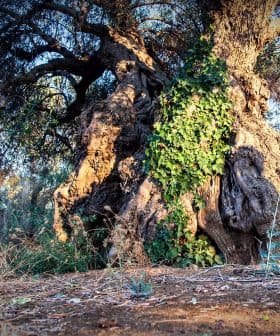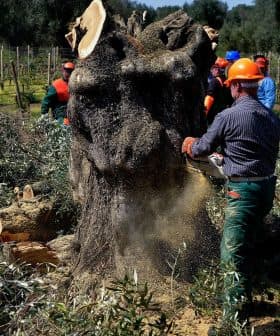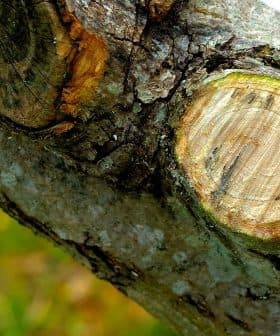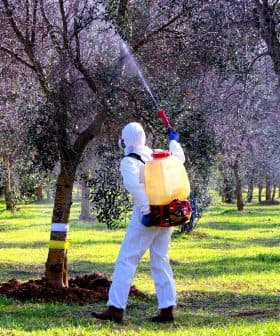EU Court Allows Mandate for Felling Trees Near Those Infected by Xylella
The EU Court of Justice said that the Commission may require states to remove all plants capable of being infected by the Xf, even when there are no symptoms of infection, when such plants are in the vicinity of plants already affected.
 xf55
xf55The EU Court of Justice ruled that the European Commission can require member states to remove all plants near infected ones with Xylella fastidiosa, even if they show no symptoms, based on the precautionary principle. The judgement also stated that the removal of plants is justified by the significant correlation between the bacterium and olive tree pathology, and that lighter measures have failed to prevent the spread of the disease.
The EU Court of Justice said that the European Commission may require member states to remove all plants capable of being infected by Xylella fastidiosa (Xf) bacterium if they are in the vicinity of plants already affected, even when there are no symptoms of infection.
The removal of infected plants, even where there is scientific uncertainty on the subject, is justified by the precautionary principle.
According to the judgement, “the concerned Member State, within a 100 m radius around the plants that have been tested and found to be infected by the specified organism, immediately removes: host plants, regardless of their health status; plants infected by the specified organism; plants showing symptoms suggestive of possible infection by that organism or suspected of being infected by that organism.” Moreover, it “must perform appropriate pesticide treatments against the specified vector organism and plants that can host vectors. Such treatments may include, where appropriate, the removal of plants.”
In an expedited procedure, the Court confirmed the validity of the Commission’s decision that imposed the obligation to remove all host plants within a radius of 100 meters around infected plants. Since the obligation to apply appropriate phytosanitary treatments might include, ‘as appropriate’, removal of plants, a system of compensation for farmers is not laid down by the measure at the moment, but cannot however be excluded.
Luxembourg judges clarified that, although the scientific opinions have not yet shown the existence of a certain causal connection between the Xylella and desiccation of the olive trees, “nonetheless there is a significant correlation between that bacterium and the pathology displayed by the olive trees. In this sense, the adoption of precautionary measures such as the removal of infected plants, even where there is scientific uncertainty on the subject, is justified by the precautionary principle.”
The Court also affirmed that the removal of the plants located in the vicinity of infected plants is strictly ‘proportionate,’ considering the adoption by the Commission, in 2014 of lighter measures that have failed to prevent the spread the bacterium. Furthermore, “the adoption of less burdensome measures are not possible, since there is currently no treatment that will heal the infected plants in the open field.”
Luxembourg, however, warned that in the event of new scientific data from which it transpires that it is no longer necessary to chop down the host plants, the Commission should amend the measures.
In December, a prosecutor in Lecce ordered a seizure of all olive trees slated for removal in the emergency plan, which he now has to decide whether to keep or revoke.
“I will convene a task force meeting next Tuesday for assessing the effects of this judgment,” said the president of the Apulia Region, Michele Emiliano, who after Tuesday’s meeting intends to confront the Lecce prosecutor and the Ministry of Agriculture. “Based on the Italian position which will emerge from such convocations I will require a meeting with the highest authorities of the European Union,” Emiliano announced.
As expected, the judgement has prompted protests among farmers who struggle for the safeguard of their plants.









